Built for Zero uses functional zero to measure whether a community has measurably solved homelessness for a population.
What is functional zero?
Functional zero is a milestone, which must be sustained, that indicates a community has measurably solved homelessness for a population. When it’s achieved, homelessness is rare and brief for that population.
Communities in Built for Zero are confirmed for achieving functional zero using their quality, by-name data, which is updated at least monthly.
What does functional zero mean?

1. Homelessness is rare and brief.
Every community has a functional zero threshold — the average number of people exiting homelessness in a month. When a community achieves functional zero for a population, it is keeping the number of people experiencing homelessness below this threshold. This means that the number of people experiencing homelessness at any time does not exceed the community’s proven record of housing at least that many people in a month.
This requires systems that are preventing homelessness, quickly detecting homelessness when it occurs, and permanently and promptly resolving those incidents of homelessness.
2. Cities and counties are operating off of a full accounting of homelessness at all times.
They do this by maintaining quality, real-time, comprehensive data on who is experiencing it.
3. The community is working toward equitable systems, starting with a focus on race and ethnicity.
Any system that is not designed to identify and respond to disparities risks perpetuating them. Read more about the indicators communities track.
4. Finally, all of these achievements are sustained over time, even as local conditions change.
Communities reach functional zero once, and they must keep sustaining it. The numbers of people at risk of or experiencing homelessness may rise, due to any number of external factors. Functional zero tracks whether systems can continuously drive those numbers down.
How is functional zero measured for chronic, veteran, and youth homelessness?
Communities in Built for Zero focus on achieving functional zero for one population, as a step on the way toward solving homelessness for all populations. A study by the Urban Institute found that this focused approach can accelerate a community’s progress on subsequent populations.
Functional zero for veteran homelessness
Functional zero for veteran homelessness means that fewer veterans are experiencing homelessness than can be routinely housed in a month, with a minimum threshold of 3 veterans.
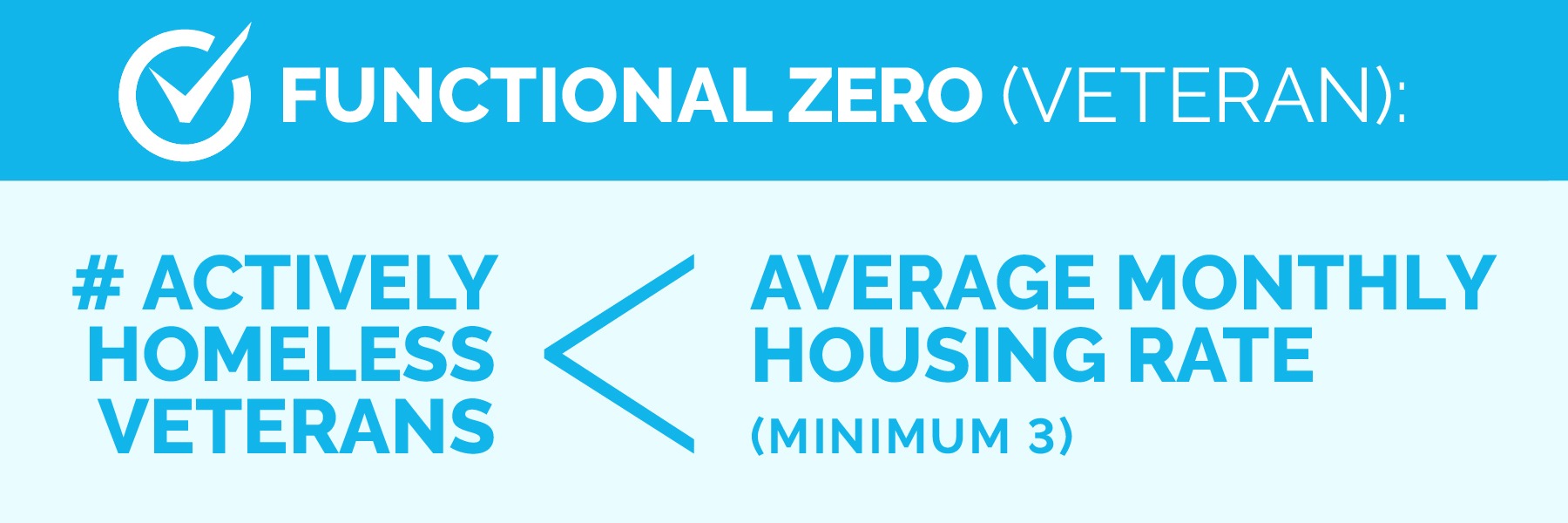
Functional zero for chronic homelessness
The definition for ending chronic homelessness accounts for the long-lasting nature of chronic homelessness, which can be more readily anticipated and prevented. As a result, functional zero for chronic homelessness means there are fewer than 3 people experiencing chronic homelessness at any given time (or .1% of the total number of individuals reported in the most recent point-in-time count, whichever is greater).
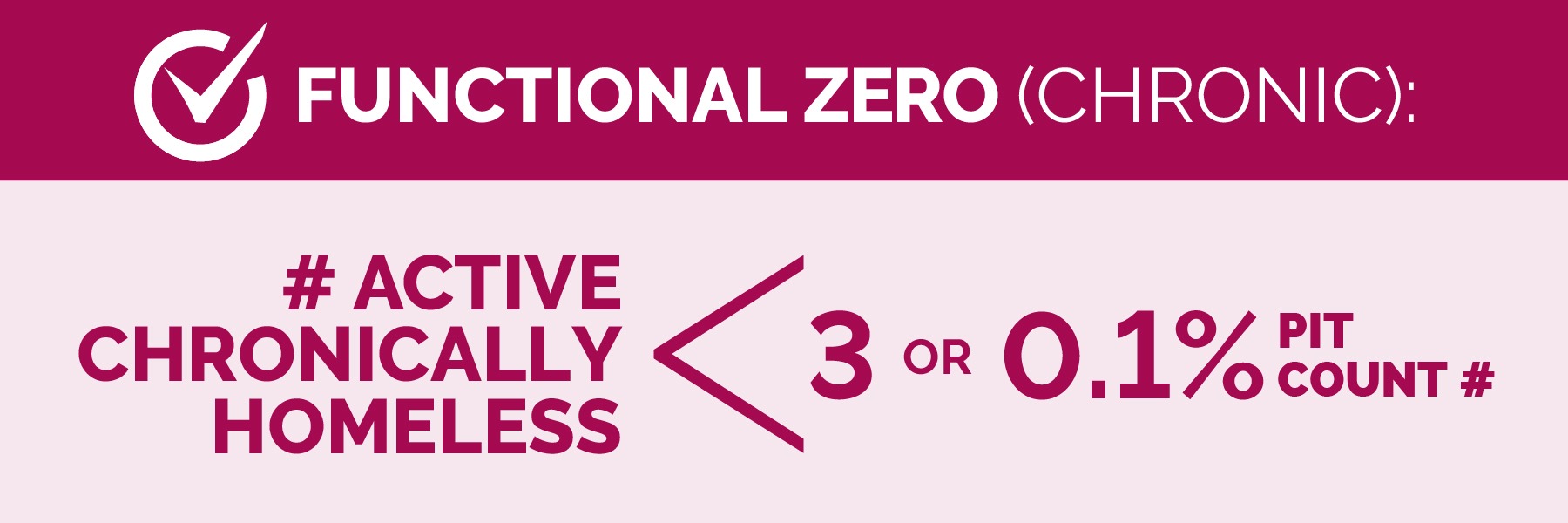
Functional zero for youth homelessness
Functional zero for youth homelessness means that fewer youth are experiencing homelessness than can be routinely housed in a month, with a minimum threshold of 3 people. Youth who are living in transitional housing are not included in this definition, but communities will continue to monitor transitional housing to ensure it is serving as a pathway to permanent housing for youth.
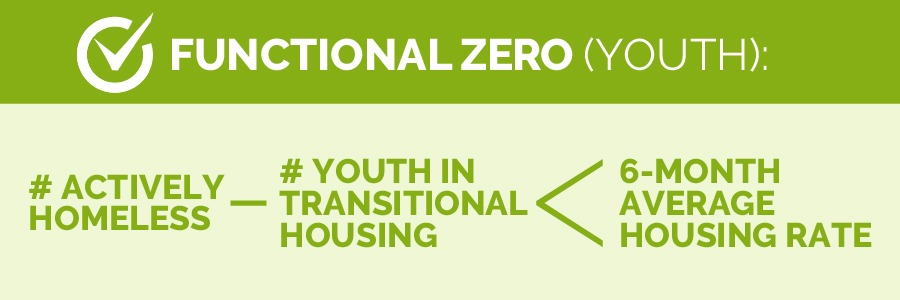
How does Built for Zero confirm communities are at, and sustaining, functional zero?
Built for Zero confirms whether communities are at functional zero in three steps:
- Making sure the community has shared at least six months of complete, quality, reliable data with Built for Zero
- Verifying that the community’s data reflects that they meet the functional zero definition
- Working with the community team to account for any flags in the community’s data
All communities at functional zero will be reviewed to ensure they are sustaining this dynamic end state for ending homelessness.
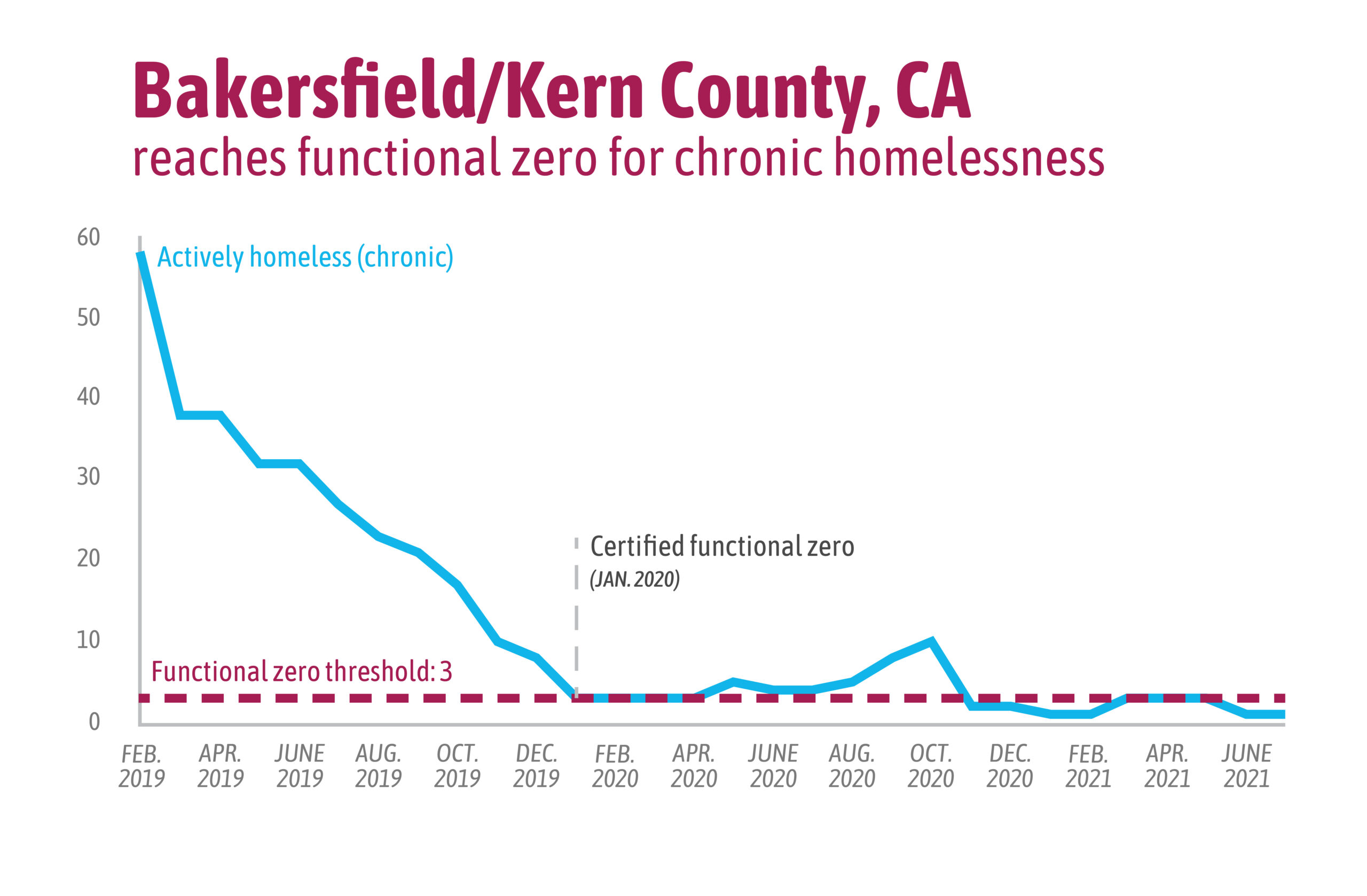
How is functional zero measured for other populations?
The first functional zero definitions that emerged focused on veterans and people experiencing chronic homelessness.
In 2020, communities that had already achieved functional zero for those populations began to request guidance on a definition for ending homelessness for all populations. At that time, no definition like this existed within Built for Zero or outside of it.
In 2022, Built for Zero announced a new functional zero definition intended to measure what it would take to end homelessness across all populations.
Functional zero for all
The definition that emerged was focused on ensuring homelessness within a community met four criteria:
1. Rare
The community has ensured that homelessness among youth, families, single adults, veterans, and people experiencing chronic homelessness are all sustained below their functional zero threshold, which means that the actively homeless number is fewer than the six-month average of positive exits.
2. Brief
The average length of time from identification to move-in is 45 days or less.
3. Nonrecurring
Of all exits to permanent housing, no more than 5% of positive exits result in a return to the homeless system within two years of exit from the homeless system.
4. Equitable
The community has demonstrated commitment and is making progress on racial equity indicators.
All of these criteria are measured based on a community’s quality data, which is vetted as reliable, real-time, and comprehensive. This means, for example, that the community’s data includes person-specific data on every single person experiencing homelessness, covers the system’s entire geography, and is updated at least monthly.
Why do we need a definition for solving homelessness?
We use functional zero because communities need a definition for solving homelessness that is clear, measurable, and can be tracked over time. We cannot compromise on the rigor of a definition for ending homelessness, because lives, communities, and the equity of our society is at stake.
Learn more
Solving homelessness across an entire community is complex. It is virtually impossible if everyone is not clear on the end state they are trying to achieve, and able to objectively measure if they are moving closer to it. Despite this fact, policymakers and practitioners often define an end to homelessness differently, or don’t have a shared definition at all.
Communities need a definition that creates accountability for the reality we want: fewer people experiencing homelessness, equitable outcomes, and for homelessness to be continuously rare and brief. This requires a standard that recognizes that ending homelessness isn’t crossing a finish line, but sustaining a new reality, even as new people experience housing instability.
Does functional zero mean zero homelessness?
Nope. Functional zero does not mean nobody is experiencing homelessness, or that no one will experience homelessness. It does mean that a community has driven that number down toward zero, and is keeping it below the community’s capacity to ensure positive exits from homelessness.
Imagine if the homeless system operated like a well-functioning hospital. That hospital will not necessarily prevent people from ever becoming sick. But it will ensure people are triaged appropriately, promptly receive the services they need, and address the illness, preventing further harm.
How is functional zero different from the federal government’s benchmarks and criteria for ending homelessness?
The federal government and Built for Zero use the same definition for confirming that communities have ended chronic homelessness. The two entities differ on their definitions of ending veteran homelessness.
The Federal Criteria and Benchmarks for Achieving the Goal of Ending Veteran Homelessness and the functional zero standard for veteran homelessness represent different approaches to measurement, but they are not exclusive.
We believe that achieving the Federal Criteria and Benchmarks and/or Mayor’s Challenge criteria for ending veteran homelessness is an important milestone on the path to reaching functional zero, and a major accomplishment for a community.
The Federal Criteria and Benchmarks are complex and affirm whether a community has met valuable outcomes and system behaviors at the time that it was certified.
Built for Zero’s definition of success, known as functional zero, lays out a standard that allows a community to measure objectively and in real time whether it has ended veteran homelessness and also whether it is sustaining this outcome over time.
To achieve functional zero, a community must have fewer veterans experiencing homelessness than routinely exit homelessness. This measures whether communities have built systems that can achieve and sustain functional zero, even if new veterans experience housing crises over time.
What communities have reached functional zero?
14 communities have achieved functional zero for at least one population
12 communities have solved veteran homelessness
5 communities have solved chronic homelessness
3 communities solved ended both
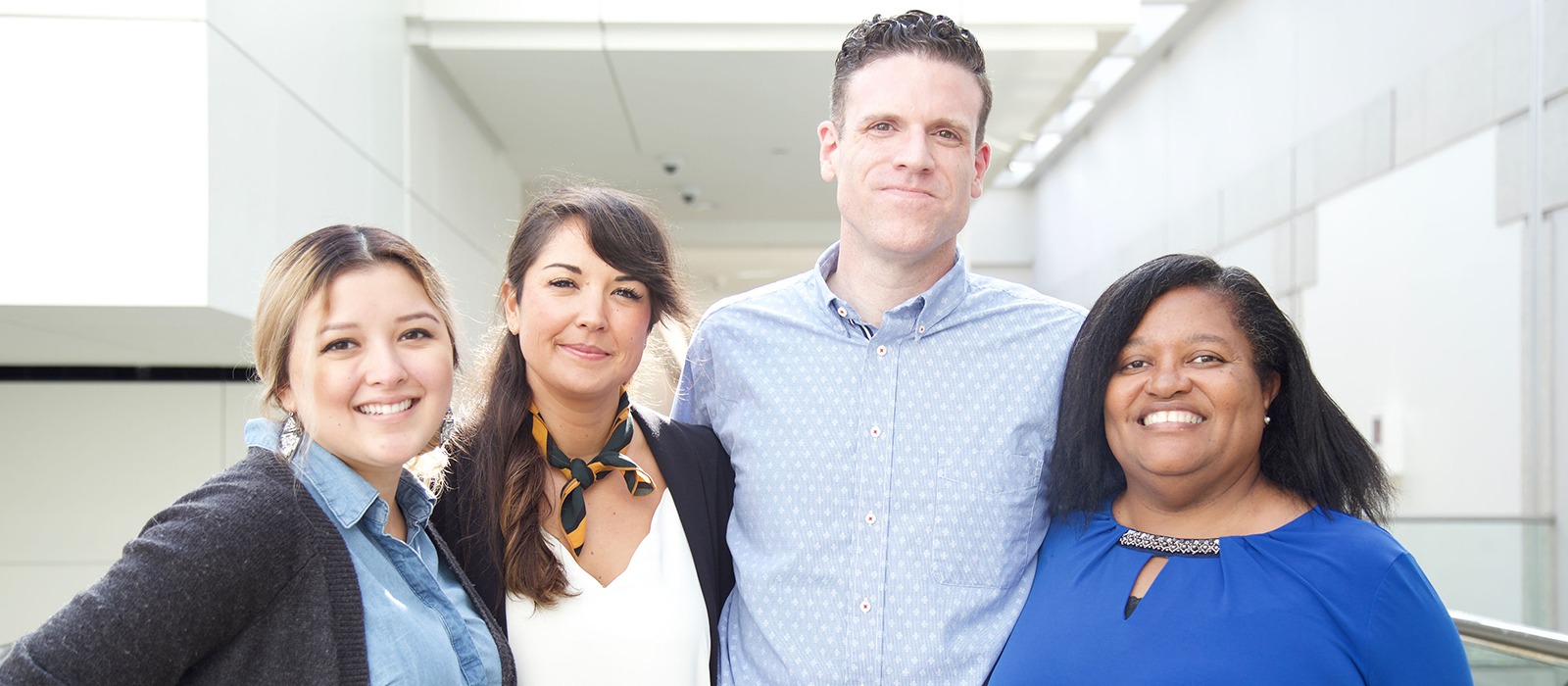
Abilene, TX
Veteran (Nov. 2018) and chronic homelessness (Jan. 2020)
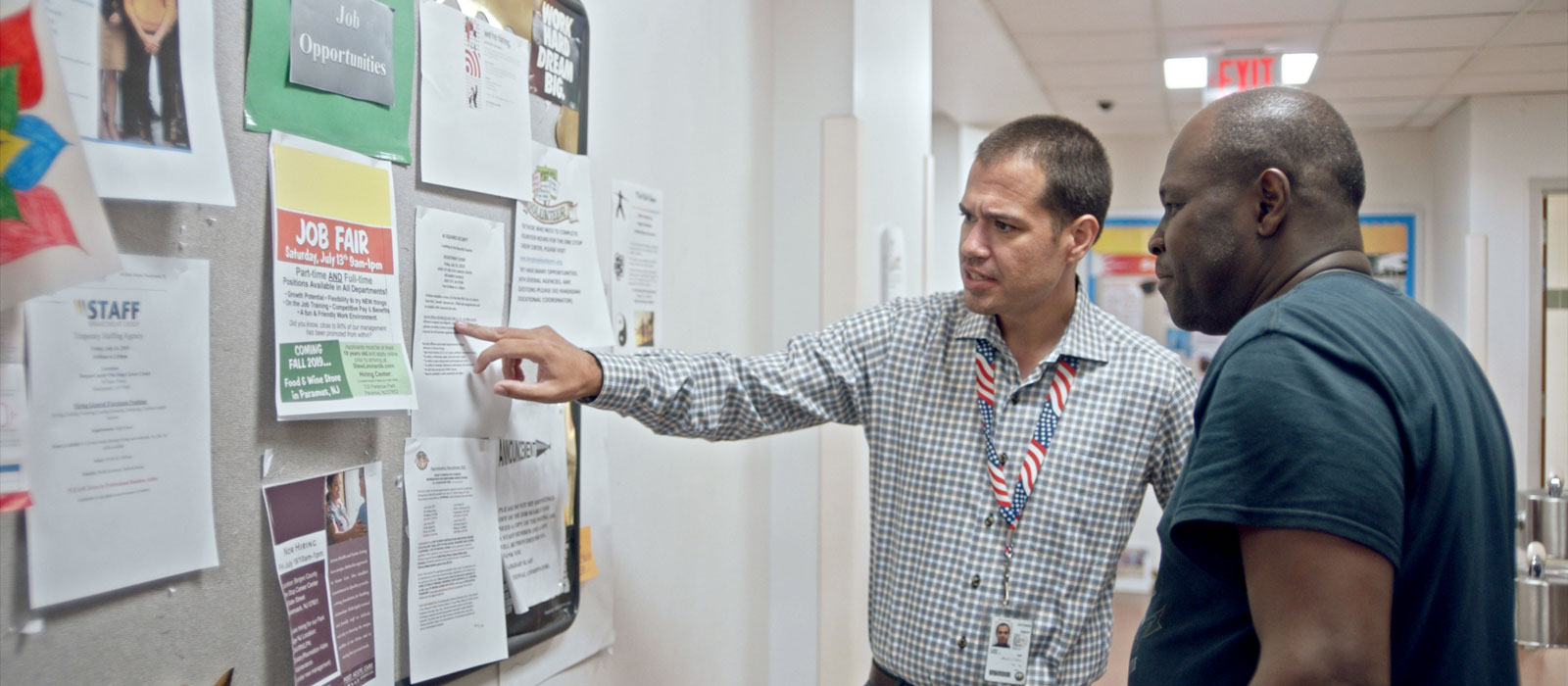
Bergen County, NJ
Veteran (Aug. 2016) and chronic homelessness (April 2017)
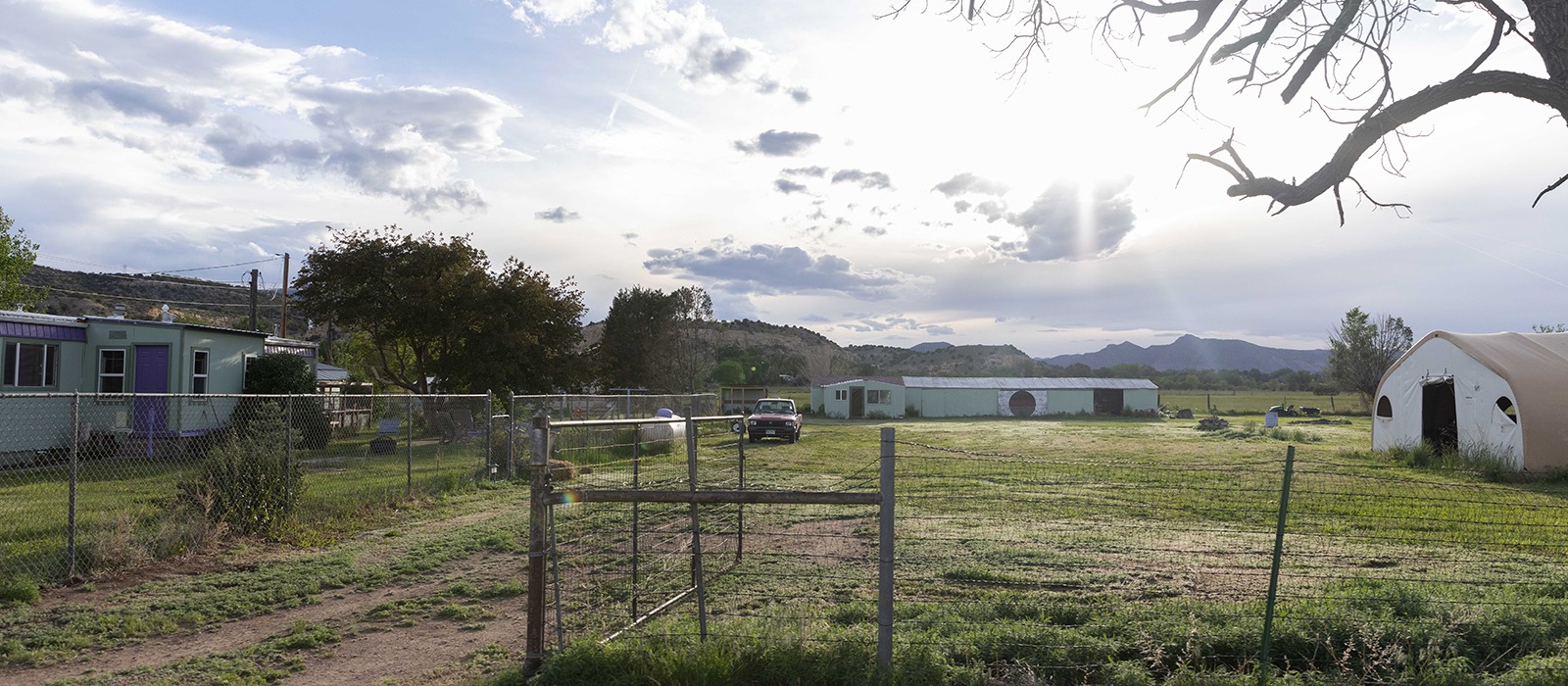
Fremont County, CO
Veteran homelessness (Feb. 2021)
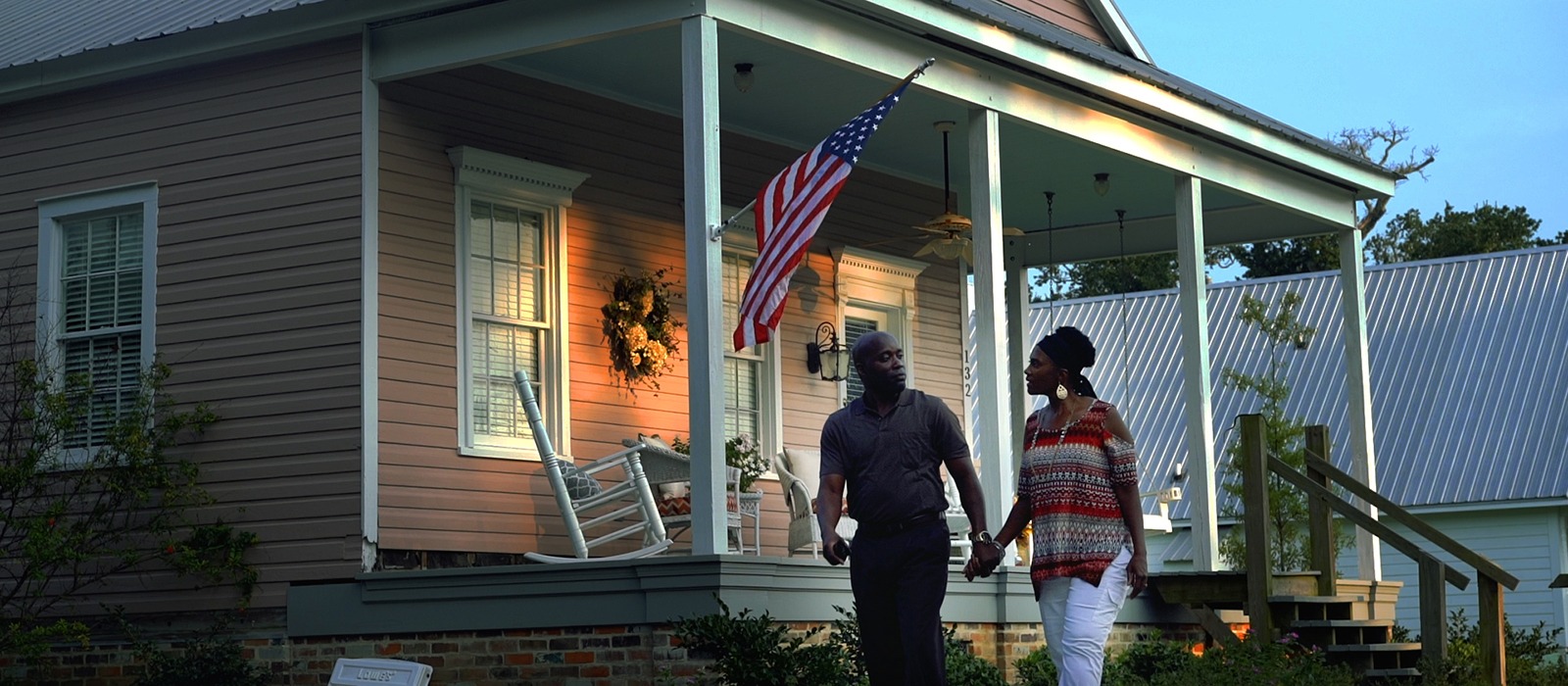
Gulf Coast Region, MS
Veteran homelessness (Sep. 2015)
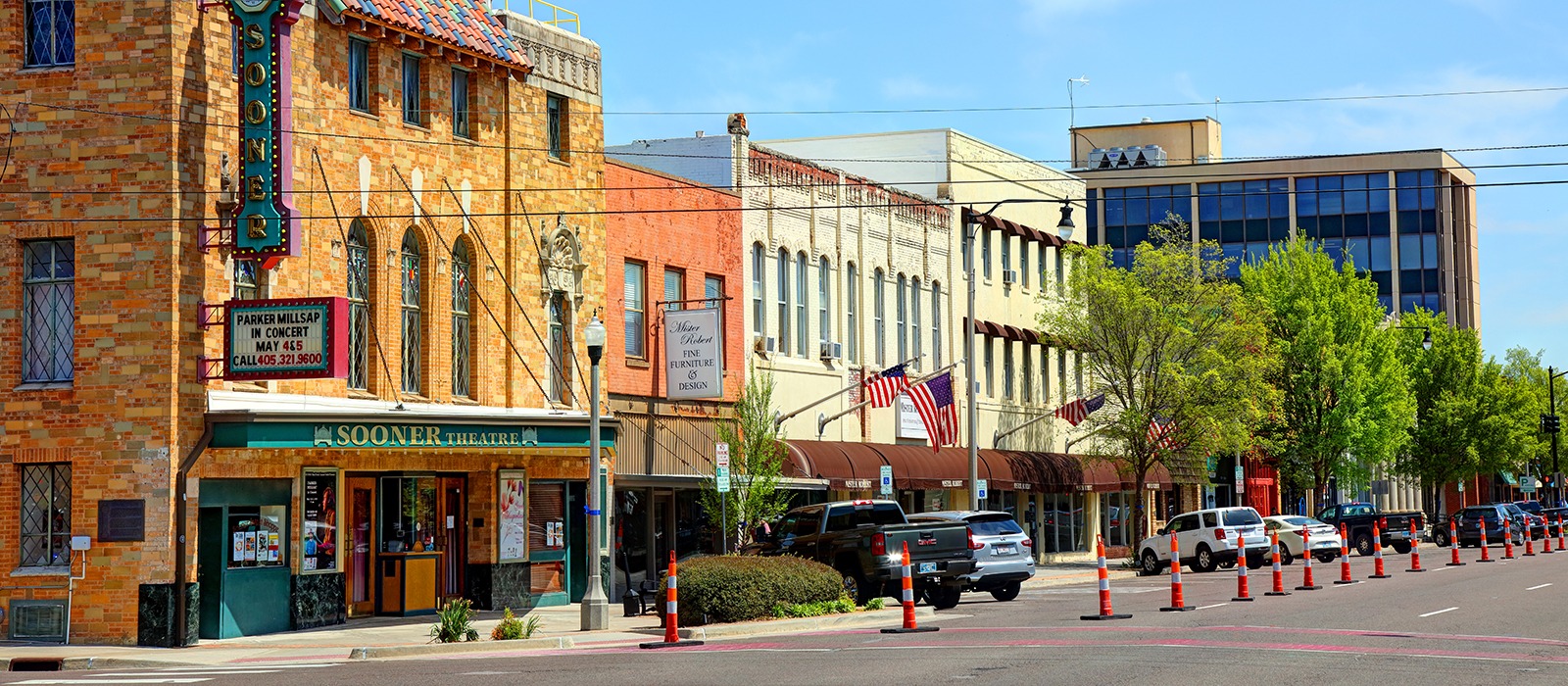
Norman, Cleveland County, OK
Veteran homelessness (Jan. 2017)

Arlington County, VA
Veteran homelessness (Dec. 2015)
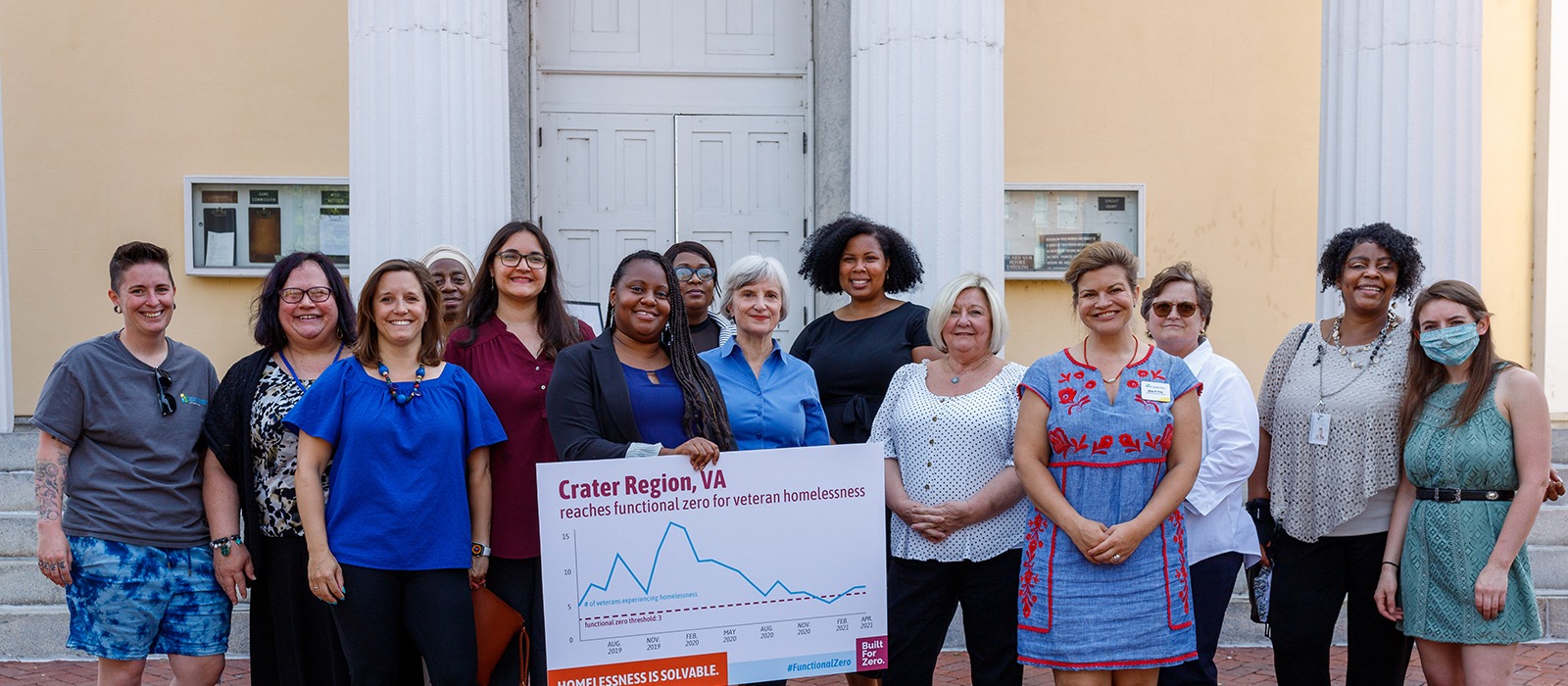
Crater Region, VA
Veteran homelessness (Feb. 2021)

Lancaster City & County, PA
Chronic homelessness (March 2017)
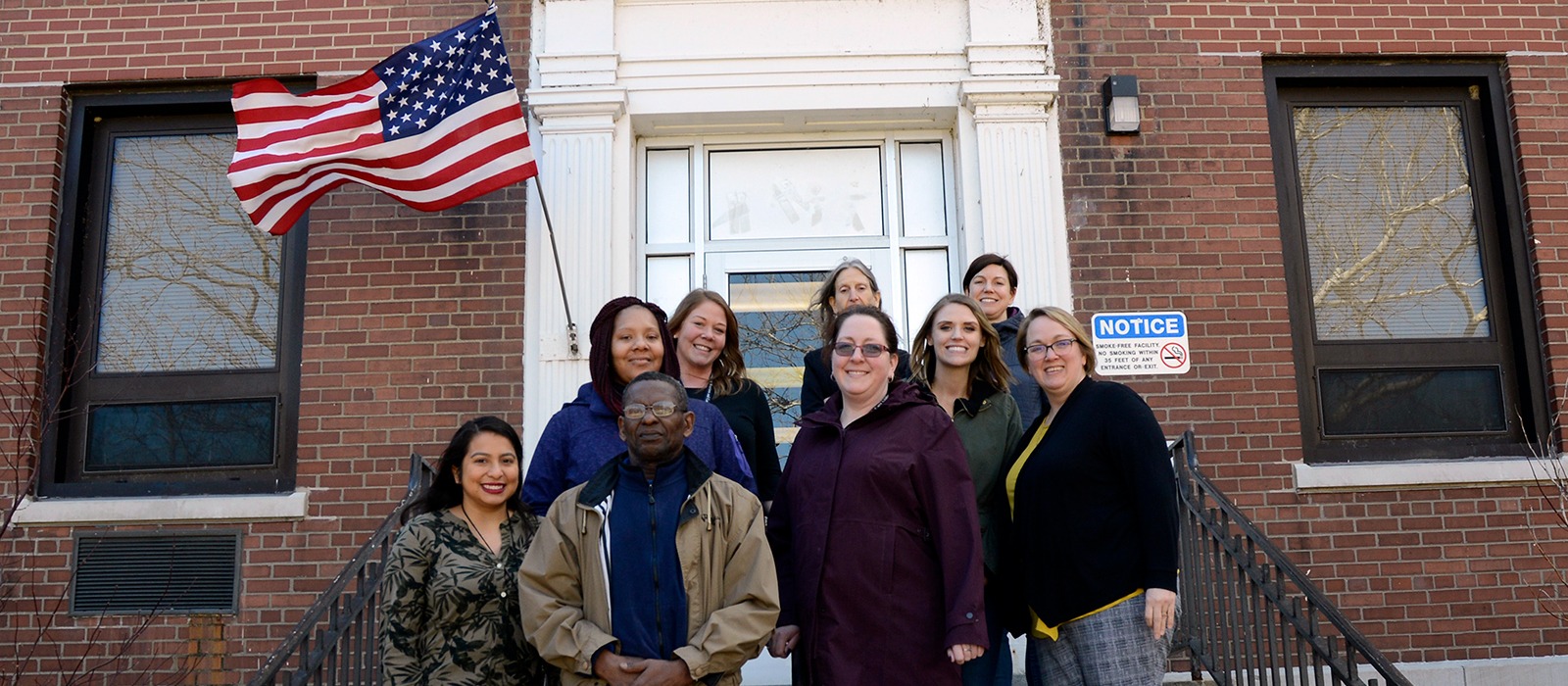
Lake County, IL
Veteran homelessness (Dec. 2018)
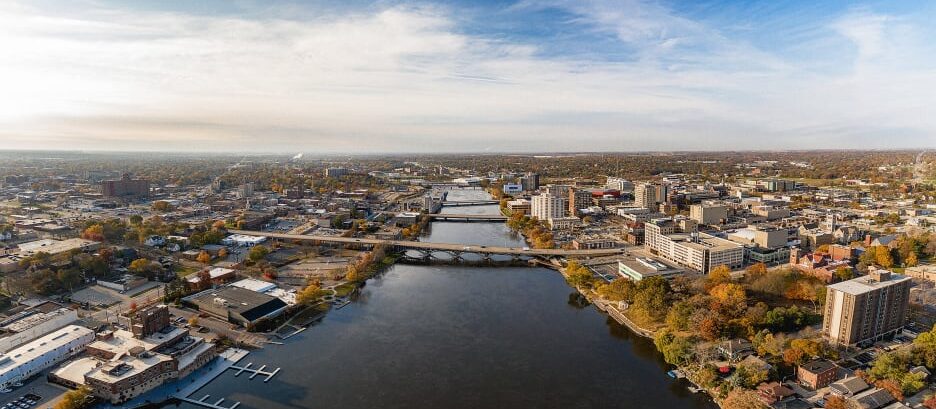
Rockford, Winnebago & Boone Counties, IL
Veteran (Dec. 2015) and chronic homelessness (Jan. 2017)
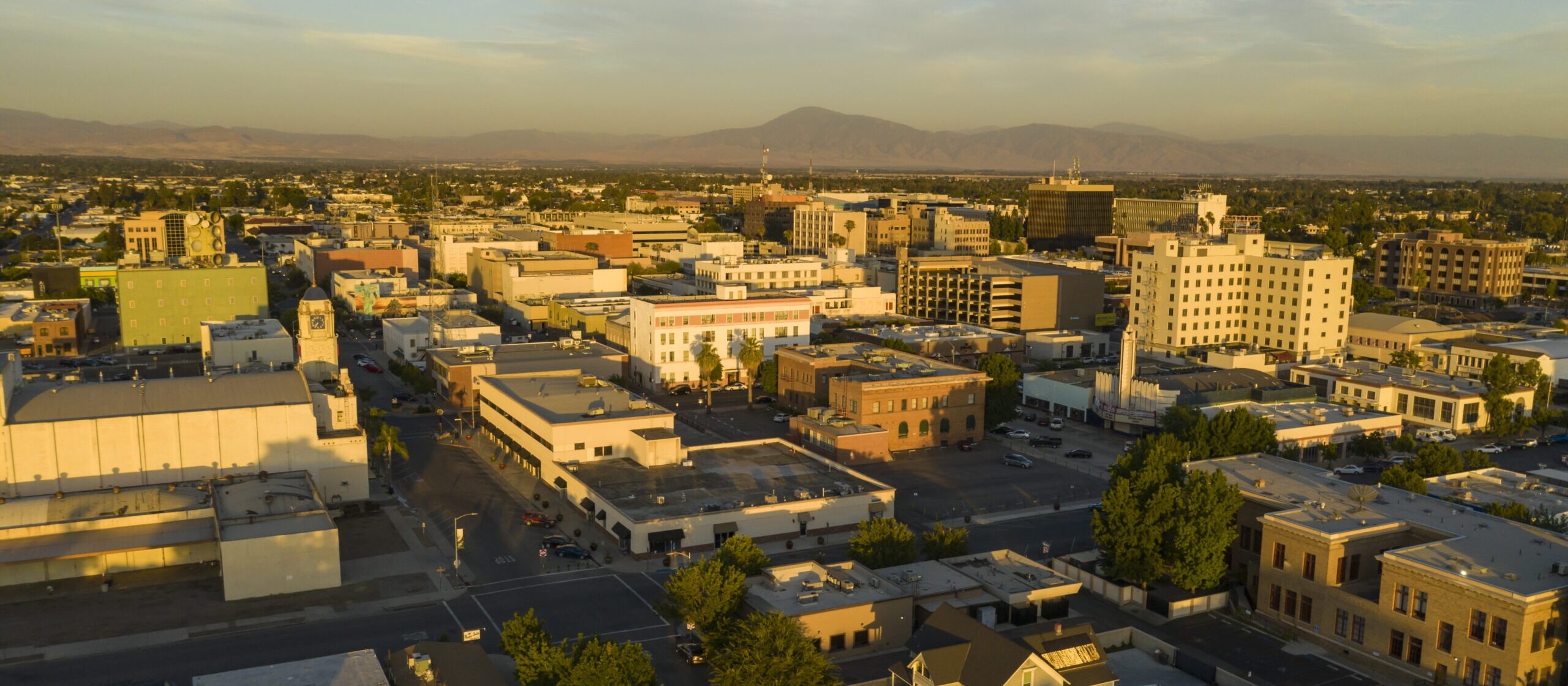
Bakersfield, Kern County, CA
Chronic homelessness (March 2020)

Chattanooga, TN
Veteran homelessness (Oct. 2019)
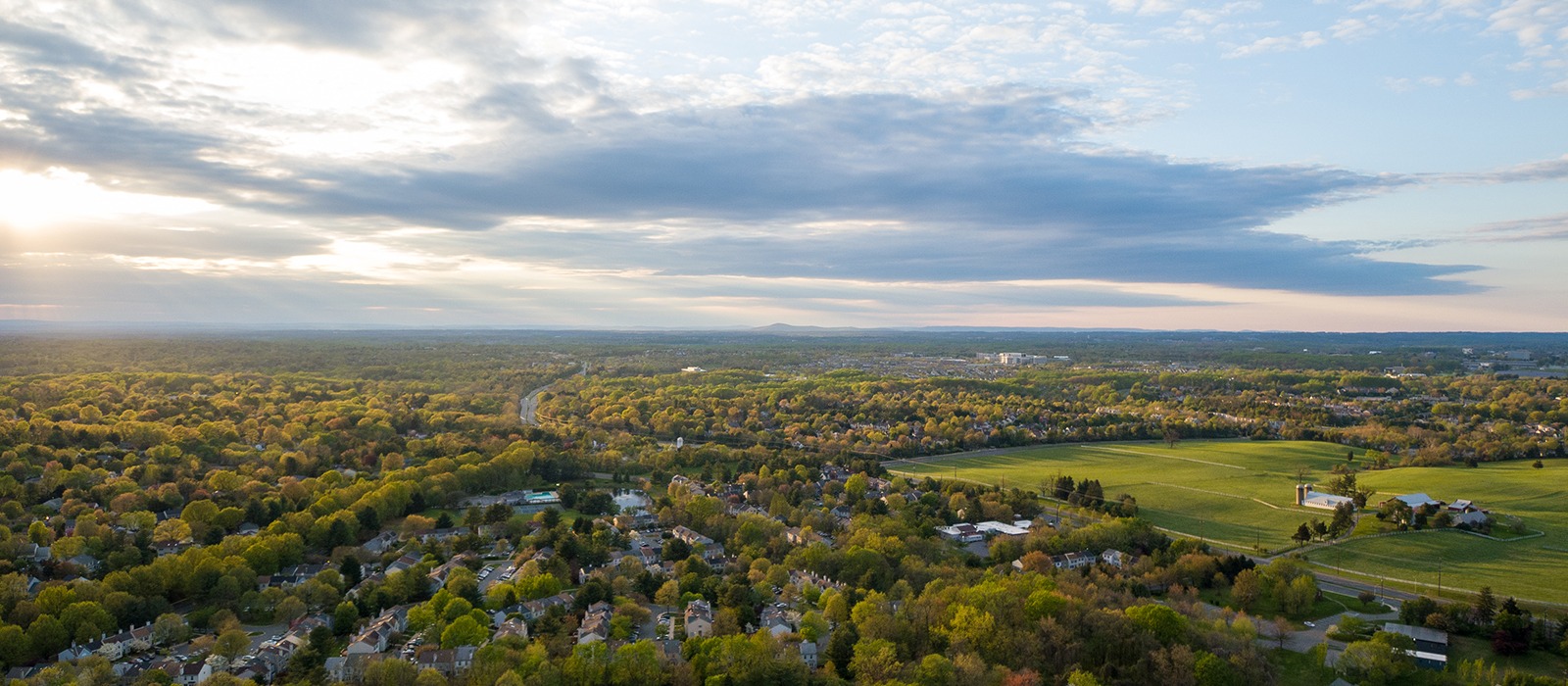
Montgomery County, MD
Veteran homelessness (Dec. 2015)
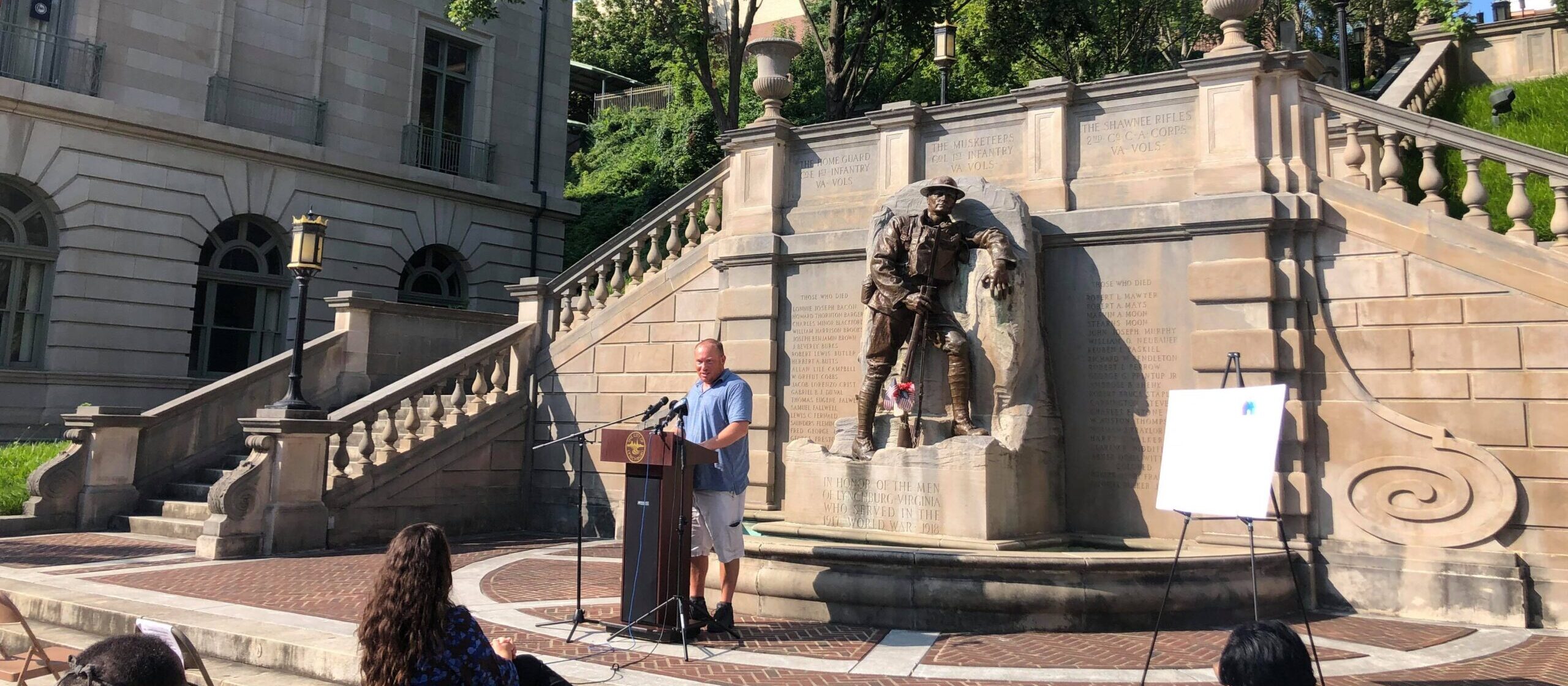
Lynchburg Region, VA
Veteran homelessness (Feb. 2020)
Questions?
Reach out to comms@community.solutions.



